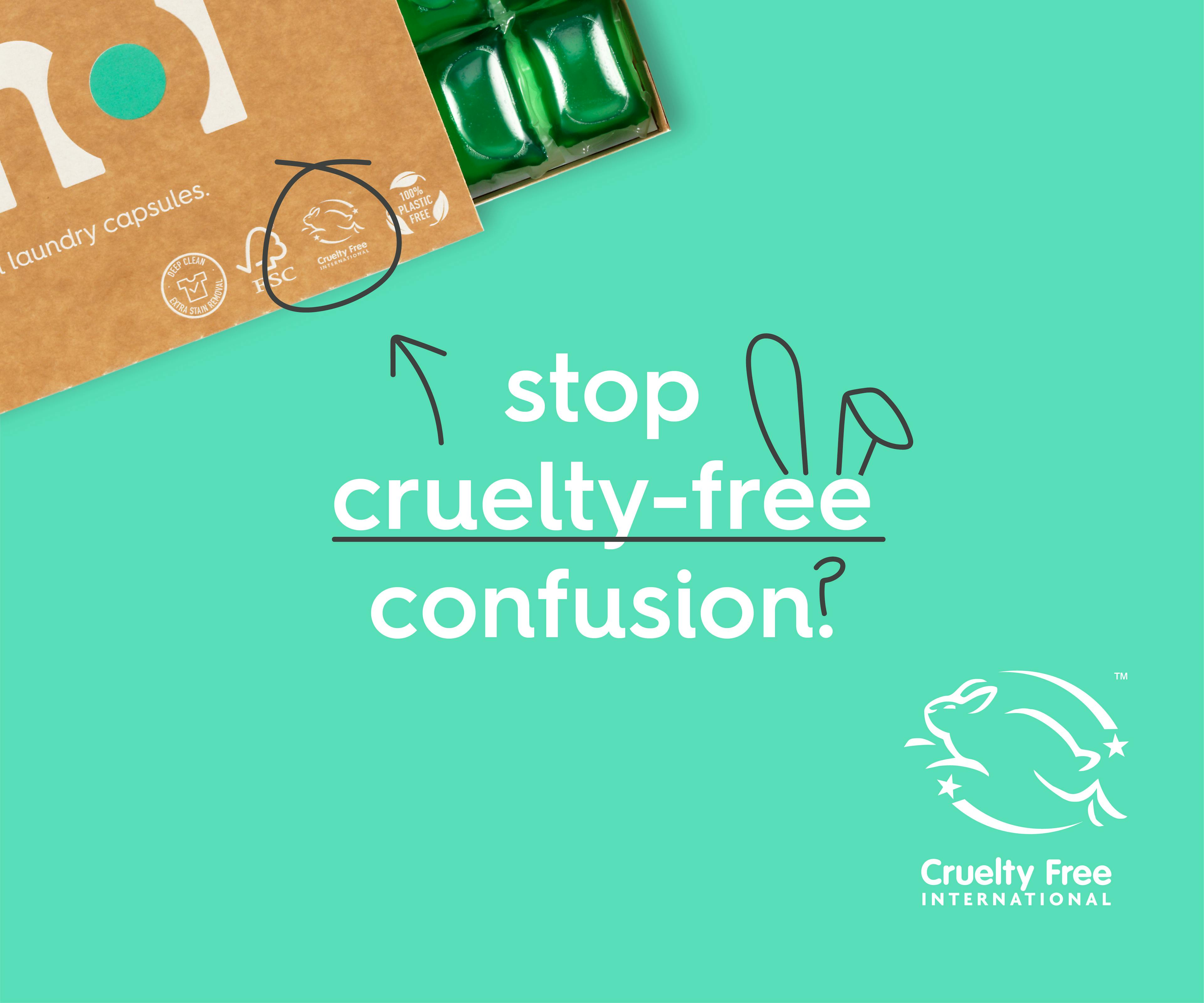08 Jan 2025
We’ve proudly received our renewed Leaping Bunny certification once again from Cruelty Free International here at smol. But it brought to light a question that a lot of our customers might not have considered…
Are the other household cleaning products sitting under your kitchen sink really cruelty-free?
In the UK, this question has a twist in its tail and many of us may be understandably confused.
So let’s take a closer look.
untangling the truth.
At first glance it’s good news!
In the UK, testing finished cleaning products and toiletries that are sold as complete, ready-to-use items on animals, is banned. It’s a great step in the right direction when it comes to animal welfare.
So far so good. But, here’s where it gets tricky.
legal loopholes.
While finished products can’t be tested on animals, the individual ingredients that go into them - still can be.
What we can find is that sometimes, laws like REACH (Registration, Evaluation, Authorisation, and Restriction of Chemicals) still demand safety tests to ensure chemicals won’t harm humans or the environment. And If non-animal-testing methods to check this aren’t deemed up to the job… animal testing of those chemicals can still occur.
Rabbits, guinea pigs, mice, rats and even fish are then exposed to these ingredients. The chemicals could be dripped into their eyes, forced down their throats or rubbed onto their skin, while others must inhale toxic substances. Reactions include vomiting, tremors, organ failure, blindness, swollen and painful eyes, skin soreness, paralysis and even death.¹
labelling issues.
This loophole creates a problem for us as consumers wanting to avoid animal testing.
Household cleaning labels can claim a product is “cruelty-free” which can give the impression that no animal testing happened at all, ever.
But if some of the ingredients in the cleaning solution were tested, the label feels... misleading.
So, how often are cleaning ingredients being tested on animals? It’s hard to say. Companies aren’t required to disclose whether the ingredients in their products have undergone animal testing under REACH or similar regulations.
We do know, however, that many household chemicals have been tested this way.
Some brands have implemented strict cruelty-free policies or use "cut-off dates" (no animal testing on ingredients after a certain year). But this isn’t a legal requirement, so the approach varies widely.
rabbits to the rescue.
Thankfully there is an answer.
To truly avoid animal testing, we just need to look for certifications like the Leaping Bunny from Cruelty-Free International. These certifications dig deeper into the ingredients of every product, ensuring both the product and its ingredients are free from animal testing for the cleaning and personal care industry.
Always look for the logo.
You’ll find it on all smol products - both our household cleaning ones and our personal care items.
As our chemist, Nay, here at smol confirms:
“Being Leaping Bunny certified reflects our commitment to cruelty-free practices. It means digging into every step of our product development process, from ingredients to new suppliers, so we can ensure we are upholding high ethical standards. Ingredient declarations are checked and renewed annually to guarantee on-going compliance.”
animal-testing takeaways.
- “Cruelty-free" on the label doesn’t always mean what you think.
- Certifications matter. Look for trusted symbols like the Leaping Bunny.
- Support brands that go beyond the bare minimum—those with transparent cruelty-free policies or fixed cut-off dates.
The UK may lead the way in animal welfare laws, but until these loopholes close, consumers need to stay savvy. Ask questions, read the labels, and research certifications to keep your cleaning routine genuinely cruelty-free.
¹sources from RSPCA and Naturewatch
